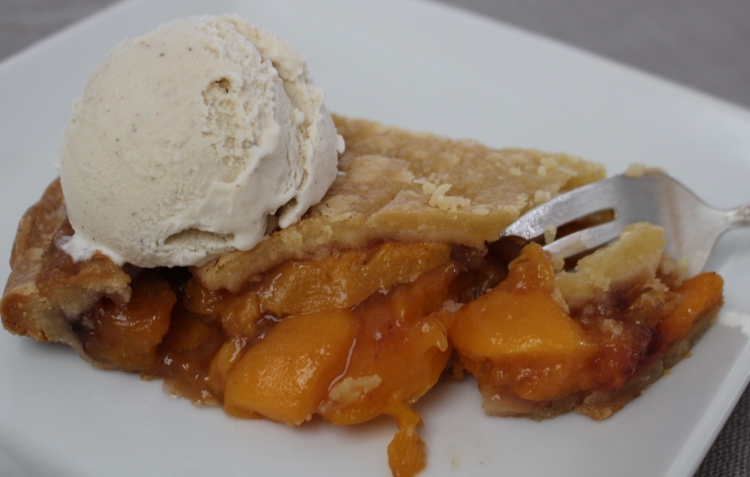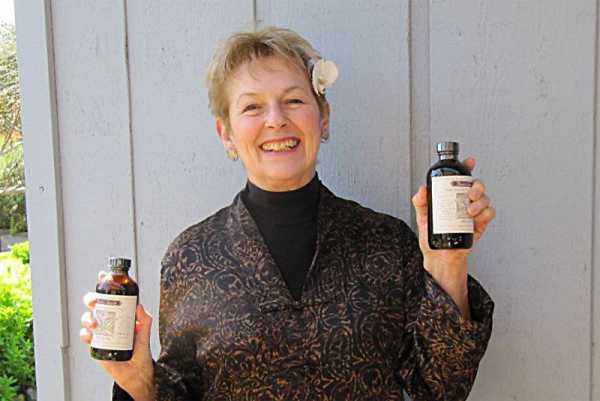
I'm amazed at how superior your vanilla is!
– Des, The Grommet
On a journey toward permanent weight loss? Want to kick up your immune system? Looking for new ideas for healthy eating? If so, put fresh pineapple on your weekly shopping list.
It’s available pretty much year-round and it’s not break-the-budget expensive. Yes, it takes a little time to prepare, though you can buy it already cut and, quite remarkably, even pre-cut, it retains most of its nutritive value. So what makes pineapple such a powerhouse?
For starters, it contains bromelain, an enzyme which is both anti-inflammatory and a pain killer. I first learned of bromelain’s effectiveness when my dog developed severe arthritis. The supplement with bromelain in it worked so much more effectively than another one that had all the same ingredients except for bromelain. Clearly this was not a placebo effect. I now take bromelain as a supplement for arthritis and allergy relief and eat fresh pineapple as well. It works!
Bromelain is a proteolitic enzyme, which means it assists in breaking down proteins in the intestines. It also synthesizes fatty foods, making them easier to digest.
Pineapple is considered a good de-tox food as it cleanses and strengthens the liver. The same holds true for pineapple juice, especially if it’s fresh.
Bromelain also cuts mucus in the throat and helps to ease both sinusitis and allergies. It is a low-allergen food meaning very few people have an allergic reaction to it.
Pineapple is high in manganese, which strengthens bones and connective tissue. It is very high in Vitamin C and antioxidants, which helps to boost the immune system, especially useful during cold and flu season. Additionally, it has anti-clotting properties, so it’s a good food (or juice) for patients who have had major surgery.
Pineapple is naturally sweet and flavorful, low in calories (about 83 calories per cup of cut pineapple) and an ideal dessert option for all of the above reasons as well as for satisfying our natural craving for sweet.
The only downside? Pineapple can be acidic, especially if it isn’t fully ripe. In the tropics pineapples are harvested when they’re very ripe, but it can be a problem for those of us in temperate countries as pineapple stops ripening when it is picked. Too green can cause sores on the sides of our mouths or on our tongues.
Enter vanilla! If you add Rain’s Choice vanilla to fresh pineapple it helps to cut the acidity! I have consistently found that adding a little sugar, agave, honey or maple syrup, along with vanilla extract to fresh pineapple, the acidity is neutralized. Vanilla beans work too, but it’s easiest to use them when making a syrup for pineapple (see recipes below).
How to Choose a Good Pineapple
My recommendation is this: Pineapples that are completely sweet and ripe are perfect for eating raw. However, if the bottom half of the pineapple is ripe but the top half is still firm, not as flavorful or is too acidic, roast it. I’ve included a recipe for roasted pineapple below.
Fresh Pineapple with Pomegranate Molasses
Remove the outer rind of the pineapple and any small prickly pieces. Cut the pineapple into 1/2-inch rings and place slices on a platter. Blend 1- 2 tablespoons of pomegranate molasses with a few drops of vanilla per slice then drizzle it onto the fruit. add a hefty sprinkling of pomegranate seeds and serve. Perfect for brunch or after a meal, especially in the winter.
You can find pomegranate molasses in specialty food and Middle Eastern or ethnic stores carrying Mediterranean foods as well as online. Or, you can make it yourself with this recipe. It has a delightful sweet/tart flavor and is the concentrated juice of pomegranates with sugar added. Grenadine syrup, the bright red syrup used in bar drinks and non-alcoholic drinks like the Shirley Temple is a version of pomegranate syrup. True grenadine syrup was made from pomegranate concentrate, sugar and water though nowadays it’s filled with artificial ingredients. By the way, pomegranates are nutritional heavyweights too.
Roasted Pineapple with Maple Syrup
Another way to turn fresh pineapple into an enticing dessert or luscious side dish with pork or seafood, is to roast slices of pineapple with a few dots of butter or coconut oil on each slice and maple syrup . Slice pineapple into rounds or quarters. Add oil or butter and enough maple syrup to spoon a little over the pineapple as it cooks. Roast the pineapple at 375 degrees F, basting it a few times, until the pineapple is soft and the syrup has thickened. Sprinkle a few drops of vanilla on each slice and spoon any remaining maple syrup or juices over each slice. Serve will a little Greek yogurt or creme fraiche or splurge with frozen yogurt or vanilla ice cream.
Some additional tasty recipes using fresh pineapple:
Vanilla-Flavored Butterscotch Sauce with Fresh Pineapple
Did you like this post? “Like” it, and share your thoughts in the comments below!I was given a small bottle of Rain’s Choice in a gift basket and I have been hooked ever since. The flavor makes all of my baking so much better! I will never use grocery store vanilla again!


© 2021. All Rights Reserved
Designed/Developed by Kat & Mouse